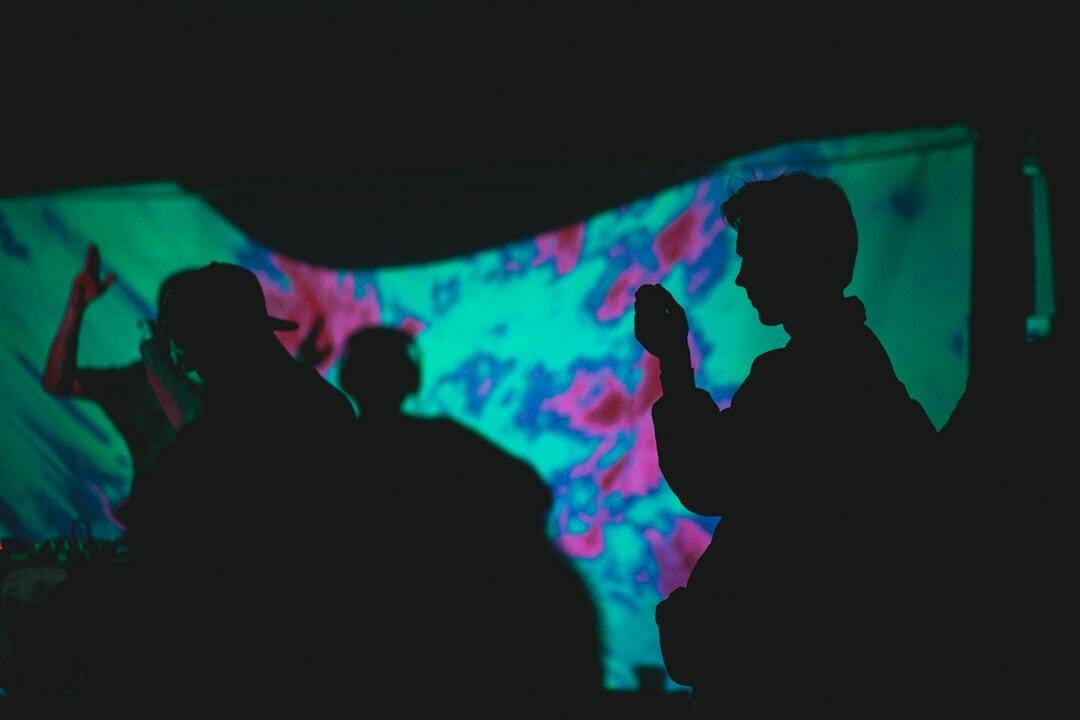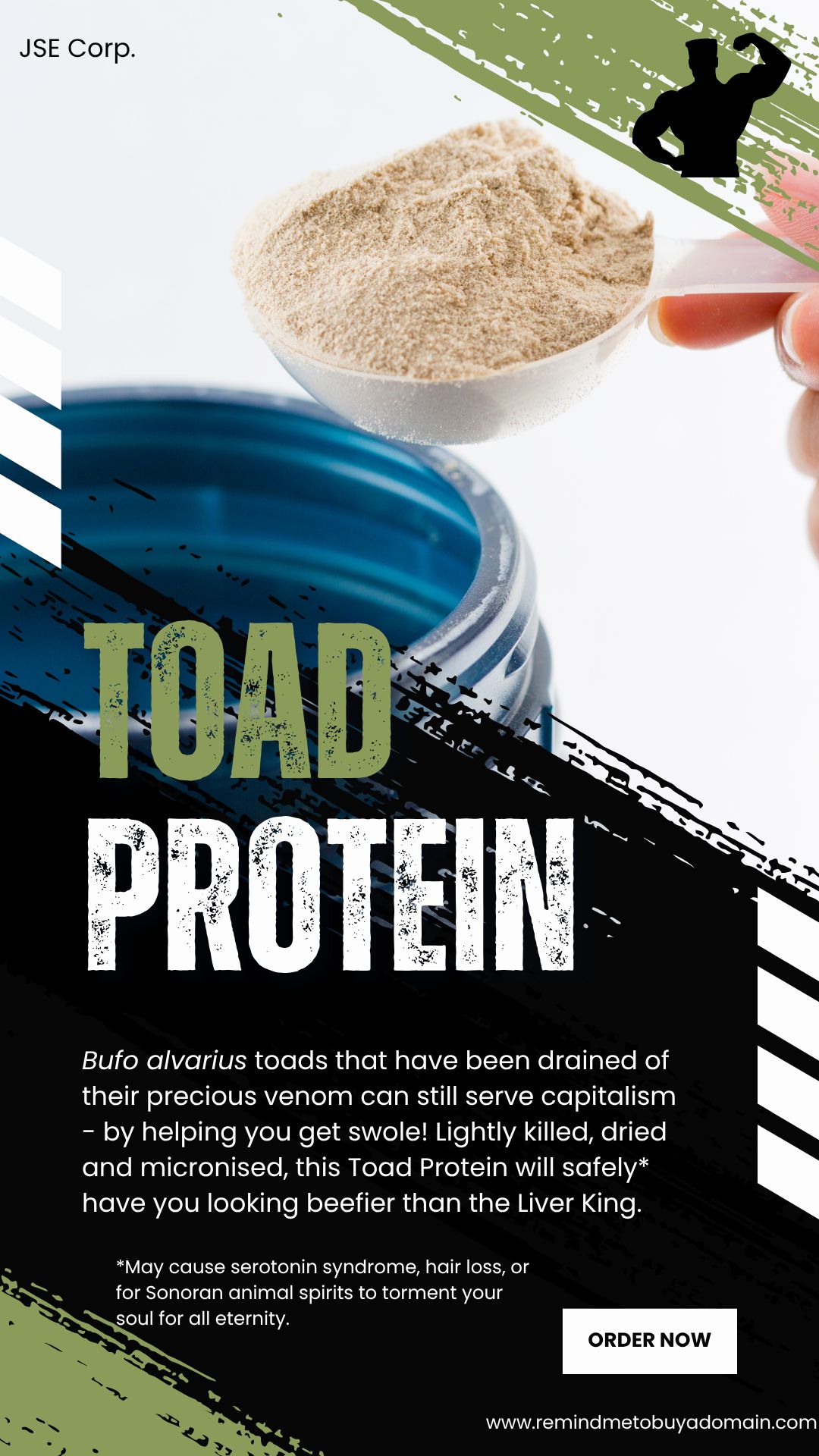Your eyes flicker open, the scintillating 3D fractals slowly bleed away, and you remember where you are. As your sitter helps you up, your phone pings. It’s a warning that the download of universal love gifted to you by a benevolent entity may violate U.S. Patent No. 18/576,658*.
Welcome to the psychedelic economy, and issue #8 of The Ethical Trip! In this edition:
What is a Markush claim and is it wrong to patent millions of molecules?
Are you building for the psychedelic majority?
What is Serotonin Toxicity?
For all this, plus a roundup of recent research, an increasingly unsettling sponsorship deal, and my worst joke yet, read on!
But first: We’ve smashed through the 100 subscriber mark, so I won’t bring up specific numbers again until they’re close to another noteworthy milestone like 500 or 1000. Again, thank you to everyone who has helped spread the word about my work and especially to people supporting me via buy me a coffee cactus.
Table of Contents
Industry Insights:
Research Round-up
Unlike last time, I felt this was a cracking fortnight in psychedelic research. Maybe it’s because I’m bored with researchers wheeling out brain scans and being excited because they did a science, but I deeply appreciate when other disciplines constructively and critically engage in this field.
First off, Pietka, C. (2025). Landscape architecture in support of psychedelic-assisted therapy: Considerations for design of outdoor spaces. I haven’t finished it yet as it’s a whole Master’s thesis. But what I’ve read so far of this effort to use trip reports to inform design of outdoor psychedelic assisted therapy (PAT) spaces is outstanding. Really cool work that might be useful for PAT operators or anyone wanting to take a conscious approach to designing an experiential space.

Pietka (2025)
Phenomenology of Psychedelic Experiences, by Danny Forde, came out online on July 15. Again, I’ve not read all of this, having only gotten part way through the first chapter. But given that its core thesis is “that certain psychedelic experiences disclose mind-independent aspects of reality” and the structure maps a careful approach to the arguments in Letheby (2021), I think it’s going to be pretty good.
Patch & Smith (2025) look at the ethics of set and setting, and make some interesting arguments around how external factors overlap with placebo effects in shaping psychedelic experience.
Lee, S.J., Epland, C., Kaitz, N. et al (2025) looked at individual perceptions of art displayed in a psychedelic dosing setting, and yes, they do make a difference.
Psychedelic-Assisted Therapy Training in the US: A Landscape Analysis highlights the need for things like more spiritual, existential, religious, and theological (SERT) training in US facilitator/practitioner training programs. Unfortunately, IMO, the report utterly glosses over ethics issues. Good on the Harvard Divinity School for trying, I guess.
Lots more good stuff below, but only for subscribers!
Markush Claims & Patenting Reality
There was a lot of noise a few years back about Compass Pathways trying to patent the use of muted tones and soft furnishings. Abjectly immoral and stupid as this is (and I say ‘is’ because, this claim is still pending, meaning they’re still trying,) this isn’t the worst way patents interact with psychedelics.
There is a concerted push happening to create new and patentable psychedelic drugs, or drugs that lack the visionary experience but that may have similar potential to relieve the symptoms of things like depression. Part of this particular landscape is a kind of patent strategy called a Markush claim, a legal structure that allows a patent to cover a whole family of compounds by describing an often enormous range of possible variations on a molecular backbone.
Thar someone can claim exclusive rights for 20 years to millions or even billions of different compounds is already ethically complex. When they do so with a starting point that’s either a naturally occurring compound or something very similar to it, the ethical question gets much, much sharper.
To get the full story, and find out just how problematic this practice is, here’s Smothering Competition or Protecting Progress?: The ethics of natural compounds and Markush Patents
*For the record, US patent No. 18/576,658, that I joked about in the intro, is actually a pending claim on methods and equipment for “steady state intramuscular infusion of serotonergic drugs” which may or may not be for the purposes of extended dimensional exploration. Your experiences are safe, for now.

Want to help upgrade my budget from ‘‘frugal’ to ‘eccentric’? Support me via Buy Me a Coffee. Extra bonus content & benefits for Founding Readers membership.
Philosophical Brief: Building For the Psychedelic Majority
We all know there’s a lot more hype, money, and political/regulatory lobbying in the psychedelic landscape than there was 10 or even five years ago. One consequence of this is that the people whose journeys make up the actual bulk of psychedelic experience are excluded from important conversations and decision-making regarding psychedelic substances.
Honestly, in places like LinkedIn (ugh, I know), we barely rate a mention.
I’m not going to pretend I have a solution to this. But what I did finally think of was a phrase that helps highlight the imbalance just by using it:
The Psychedelic Majority
It’s not even new, really, as that string of words appeared in Leary’s Politics of Ecstasy and a Rolling Stone review of Jesse Jarnow’s book, Heads: A Biography of Psychedelic America. Wherever it originated, this phrase hasn’t had a lot of circulation lately.
Whether someone is in the Global South, using the plant medicines of their ancestors, or dropping acid for the first time at a music festival, they’re part of the real mainstream of psychedelics, and yet their voices don’t carry much weight right now.
I’d like to change that. So, here’s why you should care about the Psychedelic Majority.

Consultancy Corner: Serotonin Toxicity
Serotonin syndrome is a life-threatening condition caused by excess serotonin between neurons. It typically occurs when multiple serotonergic substances are combined, especially a Monoamine Oxidase Inhibitor (MAOI),which prevents serotonin breakdown, with drugs like MDMA, MDA, or 5-MeO-DMT. Using toad venom (Bufo alvarius) instead of synthetic 5-MeO-DMT may further increase the risk (though this is disputed.)
Key Signs of Serotonin Syndrome
Clonus (involuntary muscle spasms, especially in legs)
Increased reflexes
Hyperthermia (>38.5°C is concerning; >40°C needs urgent care, regardless of cause)
Agitation / Restlessness
Muscle rigidity
Elevated heart rate & blood pressure
Dilated pupils
Sweating / Shivering / Goosebumps
Nausea / Vomiting / Diarrhoea
Confusion / Headache / Insomnia
Seizures / Coma
Most Critical Warning Sign: Clonus
Often seen as foot repeatedly tapping down after lifting toward the shin.
May occur spontaneously or be induced (by jerking foot upward while holding the calf, then releasing.)
If repeated tapping occurs, especially with other symptoms, suspect serotonin toxicity and seek urgent help.
When to Call an Ambulance
If there is spontaneous or inducible clonus
If the person becomes unresponsive or has reduced consciousness (test by firmly squeezing the trapezius muscle.)
If you feel something is seriously wrong (trust your instincts.)
Mention “serotonin syndrome” or “overdose” to paramedics; police will not attend overdose calls
Be honest with paramedics about what was taken - it may save a life
For more on this, see the Australian Psychedelic Society guide to serotonin toxicity and ‘Serotonin toxicity of serotonergic psychedelics’ Psychopharmacology, 1-11.
Disclaimer: This information is general in nature and is not intended as medical advice.
Reminder (Again) - Garden States!

Tickets for the EGA Garden States conference are limited, and lecture/workshop applications are closing soon. Lots of interesting people contributing already, including Mike Jay, Alison Pouliot, Caine Barlow, Graham St John, (and me!) So if you want to attend and/or give a talk, hit that website now to buy tickets and/or apply: https://www.gardenstates.org/
If you made it this far, thanks for reading!
As always, all feedback and suggestions are welcome, and I promise* to not satirise you without mercy.
*Unless you deserve it.
🐸This week’s Ethical Trip was sponsored by JSE Corp’s Toad Protein™ - the only protein supplement derived entirely from the spent bodies of Sonoran Desert Toads who’ve completed their sacred mission of contributing to the Tulum economy.

(Author note: Personally, I think the folks at Jungian Sperm Energytm Corporation are a few Parts short of an Internal Family System. But until someone else sponsors this newsletter, I’ll keep running their ads.)
PS:
A Compass Pathways exec walks into an ayahuasca ceremony.
They patent the bucket as a ‘portable purge receptacle’ and begin legal action against Bunnings.
Written on Worimi lands. Sovereignty was never ceded.
Icon by Freepik from Flaticon

